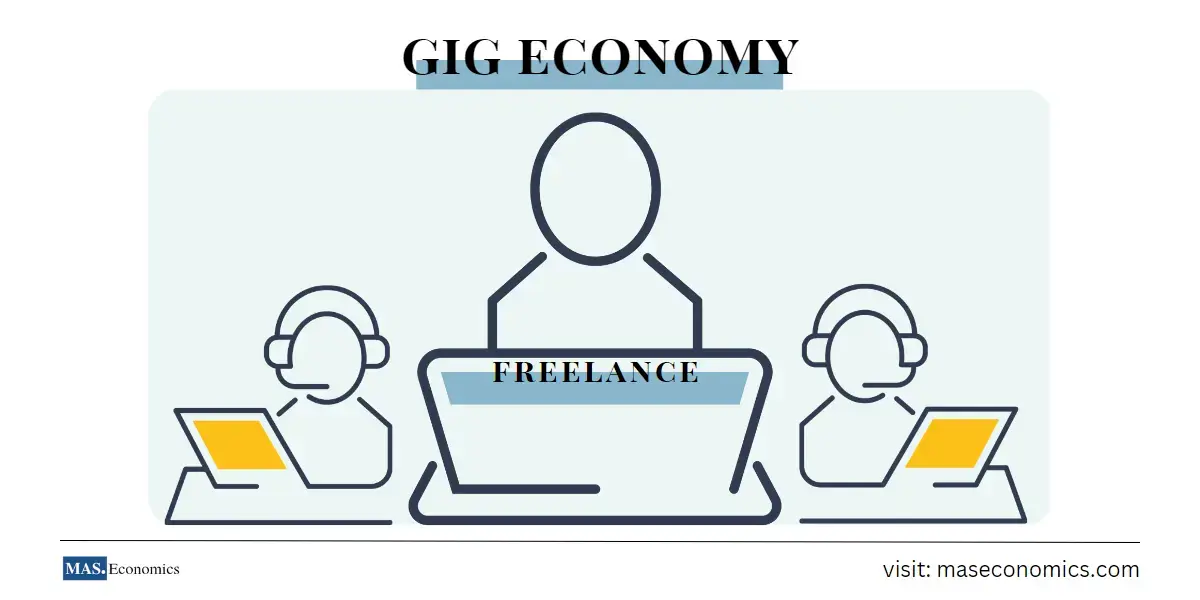The gig economy, also known as the on-demand economy, has been growing at an unprecedented rate in recent years, thanks to the proliferation of digital platforms that seamlessly connect workers with potential customers. In the United States alone, gig workers have surpassed 59 million, with developing countries experiencing a similar trend, especially after the COVID-19 pandemic.
Despite its potential for providing new income opportunities, the gig economy presents a unique set of challenges, one of which is the digital divide. This disparity restricts access to employment and income prospects for many people globally, primarily affecting those in developing countries who face a significant obstacle in accessing technology and digital skills.
The Statista estimates (2022) that only 36% of the population in the least developed countries has internet access, underscoring the digital divide between the haves and have-nots. This lack of digital infrastructure limits the earning potential of many people who would otherwise stand to benefit from participating in the gig economy. Studies have shown that 53% of gig workers in developing countries cite a lack of technology access as their biggest challenge. Many lack the training needed to leverage available technologies, perpetuating economic inequality.
Bridging the digital divide is urgent for governments, private sector entities, and non-profit organizations. With the right initiatives, such as providing digital infrastructure, training, and financial support, gig workers can gain the necessary skills to access online platforms and increase their earning potential, ultimately reducing the digital divide and promoting economic
Digital Divide in Developing Countries
Gig workers in developing countries face many challenges when participating in the gig economy. One of the most significant challenges is the digital divide, which is the discrepancy between those without access to technology. This divide creates a barrier that limits access to employment and income potential for many people worldwide.
Lack of access to reliable internet is the primary challenge that gig worders face in developing countries. This is particularly true in rural areas, where connectivity can be limited. To overcome this issue, gig workers have been using strategies such as mobile data plans or community internet centers to gain access to the internet. However, these solutions are not always reliable or affordable.
Another challenge is limited digital literacy. Many gig workers in developing countries lack the skills to use online platforms or communicate with customers effectively. Organizations like the World Bank have provided digital literacy training covering everything from basic computer skills to more specialized training tailored towards gig work to address this challenge. By improving digital literacy, gig workers can improve their chances of finding work and increase their earning potential.
Finally, many gig workers in developing countries face difficulties accessing banking services necessary to receive customer payments. Mobile banking services have become increasingly popular, and some organizations are working with local banks to provide access to savings accounts and loans. By providing access to banking services, gig workers can more easily receive payment for their work and participate more fully in the gig economy.
The gig economy has opened up many possibilities, but unfortunately, not all have shared the advantages of this type of work. According to the International Labor Organization (ILO), there is a wide disparity in the usage of digital platforms for gig work between developed and developing countries – 7.5% of adults from developed nations are engaged in it. In comparison, only 2.9% do so in developing countries, leading to what is known as the digital divide.
This gap results in poorer job opportunities for those in the gig economy from developing countries, who often receive lower pay than their counterparts elsewhere – a mere $1.25 an hour in some African states, far below minimum wage rates. Furthermore, access to education and training greatly influences success in these kinds of working arrangements, often lacking due to the lack of resources available in poorer countries. Additionally, lack of reliable internet connections or limited bandwidth prevents people from these places from competing fairly with others and finding meaningful work opportunities online.
Despite these challenges, the gig economy is gaining traction in developing countries, particularly Pakistan and India. In Pakistan, 2% of the country’s labor force is engaged in the gig economy, with ride-hailing, delivery services, and freelance work being the most popular sectors. Similarly, India’s gig workforce is expected to witness a 200% jump by 2030, driven by startups leveraging technology to offer new work arrangements.
However, to ensure fairness and sustainability across all regions, we must address this digital divide and level the playing field for all gig workers regardless of location.
Bridging the Digital Divide
The gig economy has expanded rapidly, providing opportunities for millions of workers worldwide. However, as we have seen, this growth has not been shared equally, with significant disparities between developed and developing countries. The digital divide, caused by limited access to technology, digital literacy, and infrastructure, has become a barrier for gig workers in developing countries. To address this issue, governments and organizations are taking various measures to bridge the gap.
Internet Infrastructure
Lack of access to reliable internet is a significant challenge gig workers face in developing countries, mainly rural areas. To overcome this, governments can invest in internet infrastructure by financing internet expansion and offering resources to those who wish to start their gig economy businesses. This would provide more workers access to gig economy opportunities and open new markets.
Digital Literacy Programs
Limited digital literacy is another hurdle faced by gig workers in developing countries. Many lack the skills to use online platforms and communicate effectively with customers, limiting their earning potential. Governments and organizations are addressing this challenge by offering digital skill training tailored toward gig work. For example, the World Bank initiative provides digital skill training to low-income workers in developing countries, increasing their wages by 10%. Similarly, Google’s Digital Skills for Africa program has trained over 5 million people across the continent, with 48% seeing an improvement in their employment status.
Digital Entrepreneurship
Governments can also encourage digital entrepreneurship by providing funding and resources to entrepreneurs looking to start gig economy businesses. This would enable more people to participate in the gig economy and create new job opportunities.
Alternative Payment Systems
Access to banking services like checking accounts and credit cards is essential for gig workers to receive customer payments. However, gig workers in developing countries often struggle to access these services. Governments and organizations are addressing this issue by developing alternative payment systems like mobile banking and digital wallets, enabling workers to receive payments securely.
Collaborative Efforts
A collaborative effort between governments, organizations, and companies is crucial to bridging the digital divide in the gig economy. Companies like Upwork provide freelancers with time tracking, project management, invoicing software, and other essential tools. Meanwhile, governments like the Indian government and organizations like Uber have provided various initiatives, such as pension schemes for gig workers over 60.
Conclusion
The gig economy has transformed how we work and has created new opportunities for workers across the globe. However, the digital divide remains a significant challenge for many workers, particularly in developing countries. By investing in internet infrastructure, expanding digital literacy programs, encouraging entrepreneurship, and developing alternative payment systems, we can help to bridge this divide and ensure that all workers have access to the opportunities provided by the gig economy.
As we continue to explore the benefits and challenges of the gig economy, it is crucial to recognize that it is still an evolving phenomenon. By addressing the digital divide and ensuring that all workers can participate in this new economy, we can help shape it in equitable, sustainable, and beneficial ways for workers and businesses.




